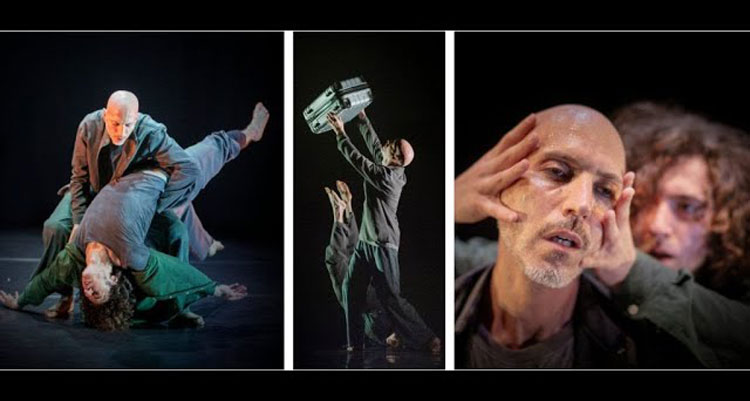Once again, Casa Árabe is collaborating today and tomorrow at 7 pm with the Coordenadas Fest festival, which celebrates its ninth edition in 2025, with two contemporary dance pieces that explore exile and Mediterranean sensitivity. Free admission until capacity is full.
Coordinates Fest proposes to reconfigure the scenic space, rethink the relationship between dance, architecture and heritage. It is a meeting to explore the languages of movement and enjoy dance in unique spaces. It is the second year in which he collaborates with Casa Árabe, considered as one of these spaces in the architectural landscape of Madrid. Casa Árabe, formerly known as the Aguirre Schools, was declared a Property of Cultural Interest (BIC) on February 18, 2025, in the category of Monument. The declaration recognizes its uniqueness as a historic and heritage building, giving it a special level of protection.
This afternoon, Casa Árabe will host the representation of El mundo atrás, by Rolando Salamé, a piece of dance and physical theater that deals with an exodus, no longer that of a people, but that of the human being. It explores the inner and outer journey of the displaced person: what he takes with him, and carries, what he leaves behind, what remains. The story is told by bodies in transit, in flight, or falling, if there is any end; souls that are balanced between two worlds, one that agonizes and another that struggles to be born. They are beings that rise again and again to resume an uncertain path, but that embody the triumph of hope over fear, of the most human over their own brutality.
Tomorrow Friday at 7 pm will be the turn of Por la Hipersensibilidad de Tu Artista – 4 Euros por Kilo (For your artist’s hypersensitivity, 4€/KG), by Romane Piffaut Dos Santos. The show is a choreographic solo that starts from tears as an intimate and public gesture at once. The work questions how our emotions, when made visible, are observed, judged and filtered by social, media, economic and gender conditioning. Inspired by Portuguese traditions of collective mourning-the lamentation and fado-, the piece explores how pain can become a shared expression and political tool. At the same time, it denounces cultural and gender stigmas that qualify certain emotions as “excessive”, such as the so-called Mediterranean syndrome, which delegitimizes the feeling of racialized and female bodies on both shores of the Mare Nostrum. By subverting this normative look, the performance turns the cry into strength and resistance: tears stop being a sign of weakness to become footprint, memory and vital affirmation. More information on this website.
